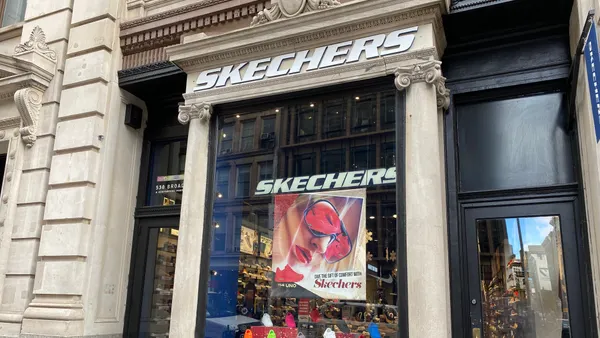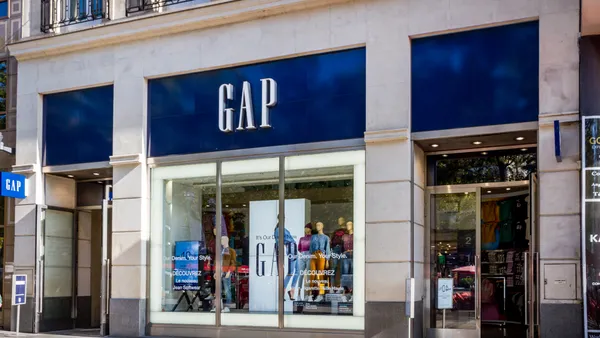Dive Brief:
- Beyond Inc. on Monday reported its first-quarter net loss swelled to $72 million from $10 million a year ago, while the operating loss widened to $58 million from $8 million — about a 600% increase for both metrics, according to a company press release.
- Net revenue was $382 million, nearly flat from a year ago. The parent company of online retailers Bed Bath & Beyond, Overstock and Zulily said its Q1 gross profit was down 27% year over year to $74 million versus $102 million last year.
- Beyond’s active customers grew to 6 million, up 26% from nearly 5 million a year ago. Beyond said it delivered over 2.2 million orders in Q1. That’s up 27% from 1.7 million orders delivered last year, although the average order value declined to $173 from $220 a year earlier.
Dive Insight:
Although Beyond edged back to growth in Q1, the company’s overall performance “underlines that Beyond has not dug itself out of the hole it dropped into post-pandemic,” Neil Saunders, GlobalData’s managing director, said in emailed comments.
Saunders said Q1’s performance appears to sustain a pattern of losses totaling over $307 million last year. “Cost-cutting measures will help somewhat, and we believe there are still areas that can be streamlined as the various brands are integrated. Even so, without a significant boost to the top line, Beyond will struggle to push itself into the black,” Saunders said.
Chief Financial and Administrative Officer Adrianne Lee said on an earnings call that Beyond has reached half of its previously announced goal to cut costs by $45 million and has a path to reach its full goal.
While Bed Bath & Beyond saw some success selling large furniture and rugs — which was typically Overstock’s focus area — Marcus Lemonis, executive chairman of the board, said sales performance didn’t meet the company’s expectations, leading Beyond to conclude that Bed Bath and Overstock can and should thrive separately by focusing on different market segments. Once that became apparent, Lemonis said the company moved Overstock’s relaunch up by six months.
Chandra Holt, Bed Bath & Beyond’s CEO, said during the call that building on brand equity and modernizing the customer experience are elements of the formula that will provide differentiation and long-term profitable growth. Holt said Tuesday the brand plans to move from its marketplace-like assortment to a more edited assortment for an easier shopping experience.
Beyond recently announced that it placed eight people in key leadership roles to support the implementation of growth and repositioning initiatives. Once each brand is realigned with its legacy, all three of the company’s core banners have the potential to become billion-dollar brands once again, Lemonis said.
Overstock CEO Dave Nielsen said during Tuesday’s call that the company expects to do a soft relaunch of Zulily during the third quarter. Zulily went out of business and liquidated at the end of last year. Beyond bought the company’s IP and brand assets for $4.5 million in March.
“Our vision for Zulily is to focus on the segment of customers who loved Zulily before — working moms who enjoy shopping for themselves and their families,” Nielsen said. The brand’s core customers, he said, see shopping as fun and like the thrill of finding a good deal. However, to bolster the bottom line, Nielsen said the new Zulily will also offer a curated evergreen assortment that requires a customer login.
Overall, Saunders said Beyond’s decision to create three brands is the right approach. “[W]e see the year ahead as being one of restructuring and gentle rebuilding,” he said. “Nevertheless, Beyond needs to start showing that its latest strategy is working.”















